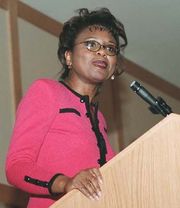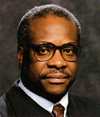Just looking at the back cover of The Language War anyone could see the author is a feminist. So it wasn’t a big surprise to see a lot of gender theory throughout. She discusses Maureen Dowd, the New York Times columnist who has been annoying all sides of the status quo for over a decade. In a 1996 column she wrote, “This year, women will get credit for a breathtaking achievement: taking sports out of the Olympics and politics out of the [political] convention.” Who is to say the male-oriented viewpoint of statistical research is the only road to so-called ‘real journalism?' And isn't it interesting that a woman would suggest so? Lakoff points out that there is more than one way to report news and sports, which I believe Dowd expresses in her everyday writing style.
I especially enjoyed the take on the words “liberal” and “ultraliberal” on page 68. It was the 1988 presidential campaign when conservatives gained leverage by calling the Democratic candidate a liberal, which “reassigned [the word] to the pure-pragmatic, term-of-abuse section of the lexicon formerly occupied by ‘radical.’” I was sharply reminded of one of the current Pennsylvanian congressional campaigns, Republican Don Sherwood versus Democrat Chris Carney, where the majority of Sherwood’s negative attack ads were mainly in the form of calling Carney a “liberal,” therefore he must be wrong for the district. Apparently, having a five-year extramarital affair and paying off your mistress to keep quiet until the election is over is grounds for a better-suited congressman...but I could be wrong. (EDIT: Carney won.)

I want to focus on the discourse of the Anita Hill/Clarence Thomas case, which is an interesting foray into feminist doctrine, especially since the case is from the early 1990s, when "women of the 90s" were just beginning to show the world they could balance work and family. Lakoff begins the chapter by introducing the movie, Thelma and Louise, and talking about how the film “universalized the problem” of sexual harassment by presenting the subject from a female perspective. It has a great parallel to what Hill had undergone in the course of the early 90s due to her fame involving the confirmation of a Supreme Court Justice. Hill came forward with comments alleging Thomas had sexually harassed her before he was to join the high court, and in the process, her name was dragged through the mud. Using language, race, and sexual identity, Lakoff analyzes the case to discover why it was such a hot topic.
A few occurrences in the case were difficult to handle, like how Republican Senator Alan Simpson publicly threatened Hill to back up the party’s choice for a new court justice. He said, “She will be injured and destroyed and belittled and hounded and harassed—real harassment, different from the sexual kind—just plain old Washington-variety harassment, which is pretty—pretty—unique in itself." And he got away with it. How American of him.
Then there are the subject of tags, a complicated use of grammar that, as Lakoff suggests, is usually “a strategy of the conversationally less powerful." Tags were often used on Hill than on Thomas. A random example: “John’s your brother, isn’t he?” shows the ambiguous nature of the structure, while seemingly hoping for a pre-determined answer. Pretty harsh tactics, especially in a courtroom under such a heated issue. I've never been part of a court before, and besides for watching TV, I could only theorize that the law should be fair--not manipulative. But life isn't always fair, so I suppose the law isn't so great sometimes, either.

The rhetoric of Thomas in his opening statement—using such phrases as “This is not American” and “for the benefit of future nominees” and “our country”—is a favorable characteristic of rhetoricians and speech writers using relatable, common language to manipulate public opinion. I was both impressed at his cunning and amazed at his gall, mostly siding on the anger side because of his ability to relate the phrase "This is not American" to the issue of being accused of sexual assalt. Accusations are met with a process of hearings and trials, something Mr. Thomas should know about. Yet he uses the phrase to help himself. Frank Luntz anyone?
Then when writer Abigail Thernstrom brought up a conspiracy theory for The New Republic, suggesting the hearing was “a well-orchestrated conspiracy of the left, the nation’s most organized thought police,” I was ready to throw stones. She goes even further, saying “I met him [Thomas] once and found him to be immensely articulate and forceful,” believing he could not be guilty of any crime. So I guess forcefulness isn’t a characteristic of your typical sexual harasser? Apparently good first impressions mean a lot to Ms. Thernstrom.
In the end, Thomas was confirmed, but Lakoff offers different viewpoints on a victory. I take the entire saga as an important learning experience. Although sexual harassment continues, it is in a public forum which we could openly discuss and admonish its offenders. I believe it is taken more seriously than in the past. The women of the 90s showed us that women could balance both careers and homes, but one particular woman, Anita Hill, showed us that it will always be important to practice free speech—no matter the conclusion--to help break down barriers for the future.
No comments:
Post a Comment